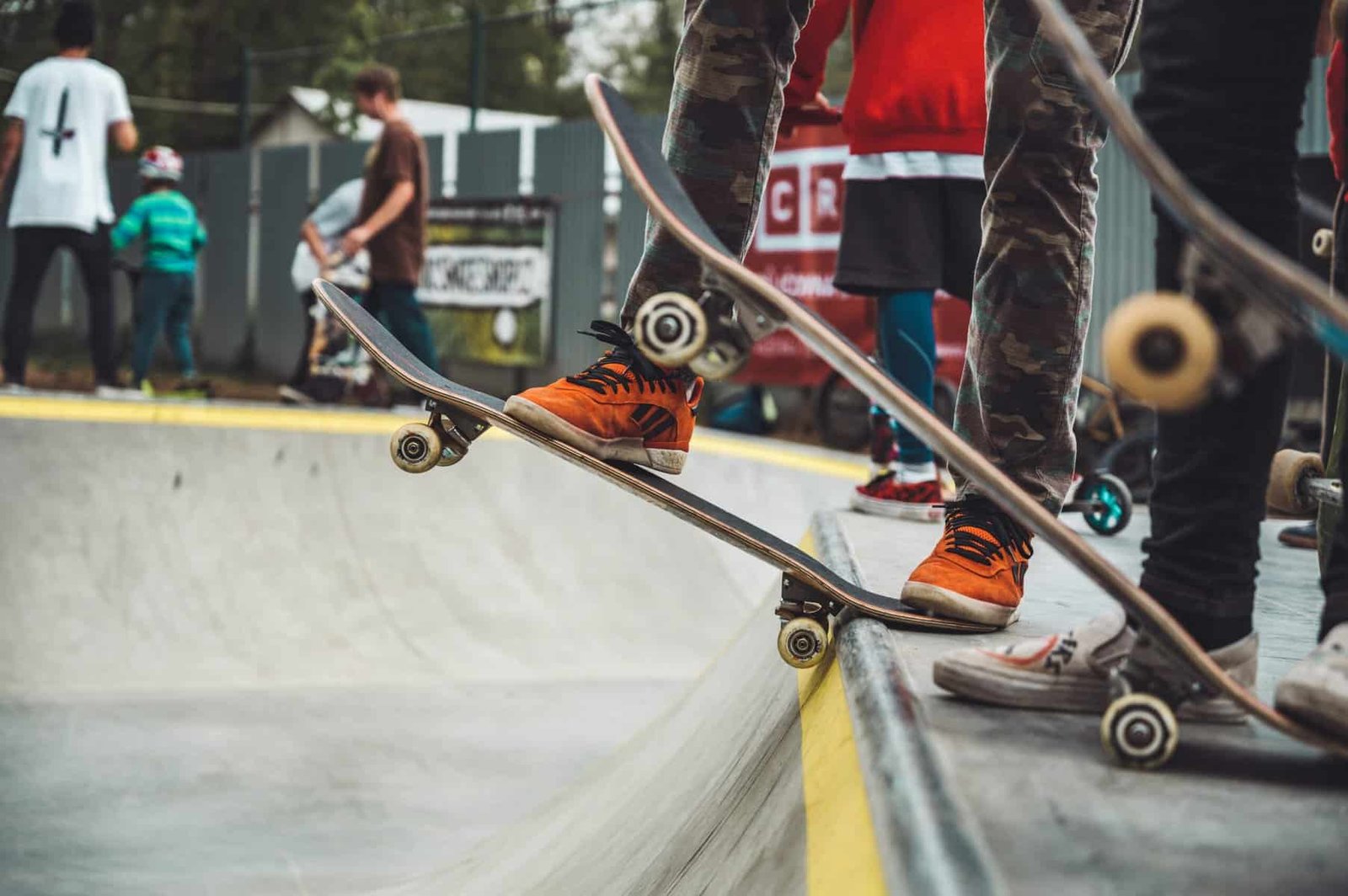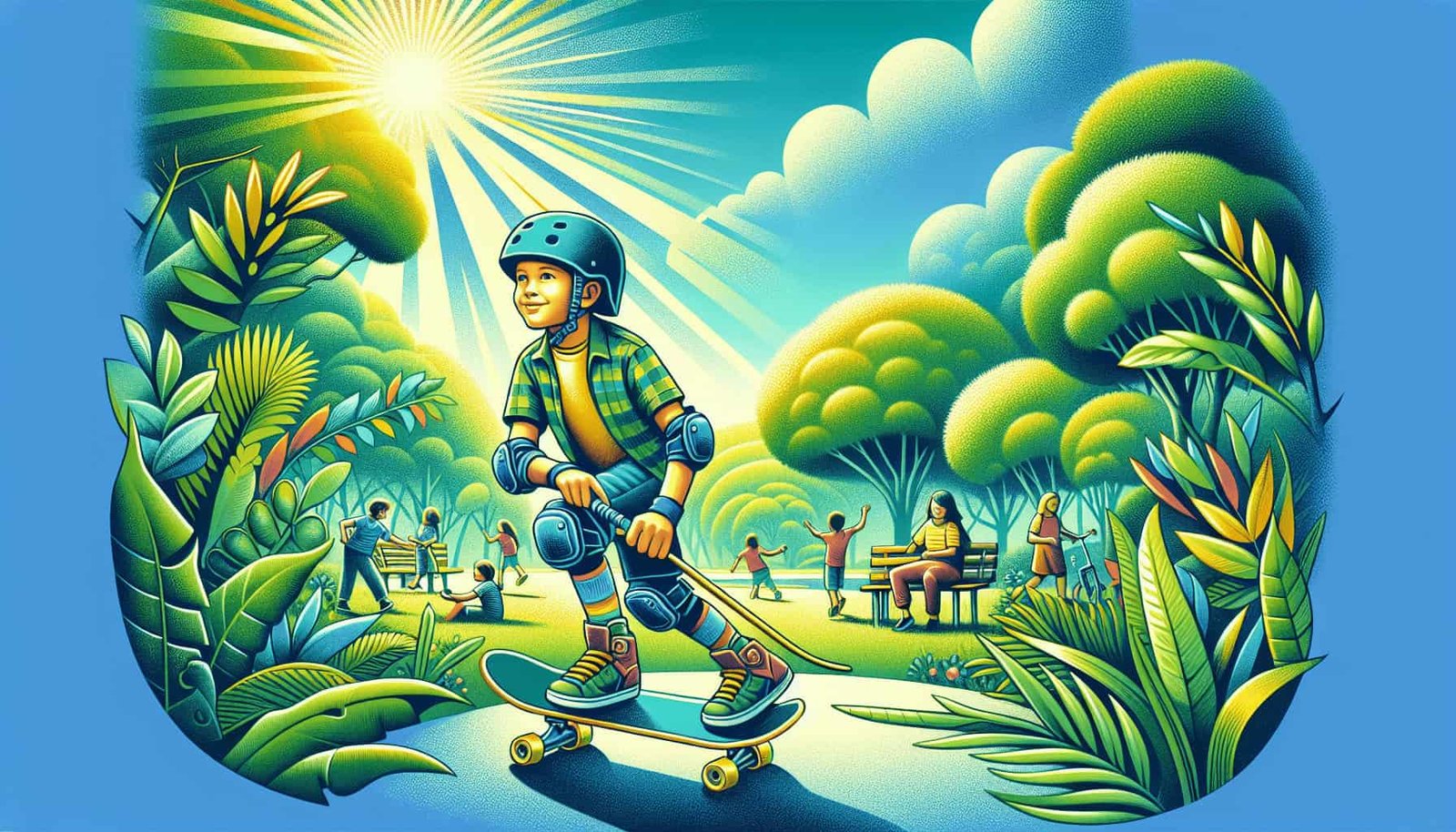Learning to ride a skateboard at an early age offers a multitude of benefits that contribute to your physical, mental, and social development. As you embark on this exciting journey, you’ll find that skateboarding enhances your balance, coordination, and overall fitness. Moreover, it encourages creativity and problem-solving skills as you master new tricks and navigate different terrains. Early experiences with skateboarding also foster resilience and determination, while building a sense of community as you engage with fellow skaters. Embracing this activity during your formative years can lead to lifelong passions and friendships, setting a strong foundation for a healthy, active lifestyle. Have you ever wondered what the advantages of learning to ride a skateboard at an early age are? It’s an intriguing question, especially when you consider the profound impact such an activity can have on a young person’s development. From physical fitness to mental resilience, skateboarding offers a myriad of benefits that might just surprise you. Let’s dive into the exciting world of skateboarding and explore how starting young can be an enriching experience.

Physical Benefits
Skateboarding isn’t just a fun pastime; it’s a powerful way to keep fit. Learning to skateboard at a young age can yield numerous physical benefits that can contribute to a healthy lifestyle.
Balance and Coordination
One of the primary advantages of skateboarding is improved balance and coordination. When you ride a skateboard, you engage various muscles to maintain your balance, which can help develop a strong sense of stability and coordination.
Cardiovascular Health
Skateboarding is an excellent cardiovascular exercise. It requires stamina and endurance, helping to improve heart health over time. Imagine the benefits of instilling these healthy habits early in life.
Strength and Flexibility
Skateboarding engages almost every muscle in your body, promoting overall strength. Additionally, the movements involved enhance flexibility, particularly in the legs and core.
| Physical Benefit | Description |
|---|---|
| Balance and Coordination | Enhances stability through muscle engagement |
| Cardiovascular Health | Boosts heart health through endurance activities |
| Strength and Flexibility | Increases overall muscle strength and flexibility |
Mental and Emotional Benefits
Physical fitness isn’t the only perk that comes with skateboarding; it also holds numerous mental and emotional advantages that contribute to overall well-being.
Stress Relief
Skateboarding serves as an excellent stress reliever. The concentration required to perform tricks and maintain balance can take your mind off worries and help you feel more relaxed.
Confidence Building
Successfully learning new tricks and overcoming challenges can greatly boost your confidence. This newfound self-assurance often translates to other areas of life, such as school and social interactions.
Resilience and Patience
Failure is a natural part of skateboarding. Falling and getting back up teaches resilience and patience, essential qualities for facing life’s challenges.
| Mental Benefit | Description |
|---|---|
| Stress Relief | Provides a mental break from worries |
| Confidence Building | Enhances self-assurance through skill mastery |
| Resilience and Patience | Teaches perseverance through repeated practice |
Social Benefits
Skateboarding is often viewed as a solitary activity, but it has significant social benefits as well. Being part of the skating community can offer opportunities for growth and connection.
Friendships
Joining a skateboarding community can help children make new friends. Whether it’s at a local skate park or through a skateboarding club, the shared interest fosters social interaction.
Teamwork and Collaboration
Skateboarding might be an individual sport, but that doesn’t mean you won’t work with others. Collaborating on tricks or learning new skills from peers encourages teamwork and the sharing of knowledge.
Communication Skills
Engaging with other skateboarders improves communication skills. Discussing techniques, giving and receiving feedback, and simply chatting while skating all contribute to better interpersonal relationships.
| Social Benefit | Description |
|---|---|
| Friendships | Builds new connections within the skating community |
| Teamwork and Collaboration | Encourages working together and sharing knowledge |
| Communication Skills | Enhances interpersonal communication abilities |
Academic Benefits
Believe it or not, skateboarding can also have a positive impact on academic performance. The skills and qualities developed can translate to better performance in school.
Cognitive Development
Skateboarding requires strategic thinking and planning, skills that are useful in an academic setting. The problem-solving required to master tricks enhances cognitive abilities.
Time Management
Balancing skateboarding with other responsibilities like homework teaches valuable time management skills. Learning to prioritize and allocate time effectively is a skill that serves well throughout life.
Focus and Concentration
The intense focus required for skateboarding can help improve concentration in academic pursuits. Being able to direct attention purposefully is beneficial for studying and classroom engagement.
| Academic Benefit | Description |
|---|---|
| Cognitive Development | Enhances problem-solving and strategic thinking |
| Time Management | Teaches effective allocation of time |
| Focus and Concentration | Improves the ability to concentrate on academic tasks |

Lifelong Skills
Starting skateboarding at an early age teaches you skills and qualities that you can carry with you throughout life. These are not limited to physical abilities but extend to character traits and personal development.
Discipline and Work Ethic
Skateboarding involves a lot of practice and dedication. The discipline developed here can translate into a strong work ethic in other areas of life, including work and personal projects.
Risk Management
In skateboarding, you assess risks constantly, whether it’s learning a new trick or deciding when to skate. These decision-making skills are valuable in everyday life.
Creativity
Skateboarding is often called an art form because of how much creativity it involves. Designing new tricks, customizing your board, and even the lines you choose to skate all encourage creative thinking.
| Lifelong Skill | Description |
|---|---|
| Discipline and Work Ethic | Develops a habit of dedication and practice |
| Risk Management | Teaches assessing risks and making informed decisions |
| Creativity | Encourages innovative thinking and creativity |
Mental Health Awareness
Recognizing the importance of mental health at a young age can shape a more balanced and healthy life. Skateboarding offers several advantages in this area too.
Self-Awareness
Skateboarding allows for self-reflection and self-awareness. You become more in tune with your body and mind, understanding your limits and capabilities better.
Emotional Regulation
The emotional highs and lows that come with skateboarding teach you how to manage your feelings. This means better control over emotions like frustration, anxiety, and excitement.
Mindfulness
Skateboarding encourages you to live in the moment. This mindfulness can be beneficial for mental health, allowing you to better manage stress and anxiety.
| Mental Health Benefit | Description |
|---|---|
| Self-Awareness | Enhances understanding of personal limits |
| Emotional Regulation | Improves ability to manage various emotions |
| Mindfulness | Encourages living in the present moment |

Encouraging Parental Involvement
While skateboarding can offer substantial benefits to young learners, the involvement of parents can amplify these advantages. Parental support is crucial in nurturing these skills and experiences.
Quality Time
Skateboarding together provides an opportunity for spending quality time. It’s a fun and engaging way to bond with your child and share in their interests.
Encouragement and Support
Your encouragement can build your child’s confidence and motivation. Being supportive through both successes and failures teaches them resilience and the importance of effort.
Safety First
Parents can also ensure that safety measures are upheld, from wearing helmets to practicing in safe environments. This creates a secure space for learning and growth.
| Parental Involvement | Description |
|---|---|
| Quality Time | Enhancing bonding time through shared activities |
| Encouragement and Support | Boosting confidence through supportive actions |
| Safety First | Ensuring the practice of safety measures |
Future Opportunities
Starting skateboarding at a young age can pave the way for numerous future opportunities. Whether it’s a career or other areas of personal development, the skills learned here can be extremely advantageous.
Career in Skateboarding
For those who develop a deep passion, a career in skateboarding is a viable option. Many professional skateboarders started young, and early learning can set a strong foundation for a potential career.
Other Sporting Pursuits
The balance, coordination, and physical fitness obtained from skateboarding can translate well into other sports. Many athletes use skateboarding as a cross-training activity to enhance their abilities in other fields.
Community Leadership
Being involved in the skateboarding community at a young age can develop leadership skills. Organizing events, leading groups, or mentoring younger skateboarders are all ways to cultivate leadership qualities.
| Future Opportunity | Description |
|---|---|
| Career in Skateboarding | Building a professional career in skateboarding |
| Other Sporting Pursuits | Applying skills to improve performance in other sports |
| Community Leadership | Developing leadership skills within the community |

Environmental Awareness
Believe it or not, skateboarding can foster a greater awareness of the environment. Utilizing outdoor spaces and becoming part of a community that often values sustainability can shape mindful environmental practices.
Respect for Public Spaces
Skateboarding often takes place in public areas like parks and skateparks. Being part of this community can teach respect for shared spaces, contributing to their care and maintenance.
Outdoor Activity
Skateboarding encourages spending time outdoors, which can foster a greater appreciation for nature. The more you interact with the environment, the more you realize the importance of preserving it.
Sustainable Practices
Skateboarding culture often emphasizes DIY (Do It Yourself) practices, from customizing boards to creating ramps. This can lead to a more sustainable lifestyle, focusing on reuse and recycling.
| Environmental Benefit | Description |
|---|---|
| Respect for Public Spaces | Teaching care and maintenance of shared areas |
| Outdoor Activity | Encouraging time spent in natural surroundings |
| Sustainable Practices | Fostering reuse and recycling habits |
Conclusion
So, what are the advantages of learning to ride a skateboard at an early age? As you can see, skateboarding offers a plethora of benefits that stretch far beyond just physical exercise. It helps in developing crucial life skills like balance, coordination, mental resilience, and social interaction. Moreover, it can have a positive impact on academic performance and provide lifelong skills that extend into adulthood. Parents can play a pivotal role in bolstering these benefits and ensuring that skateboarding is enjoyed safely. From future career possibilities to environmental awareness, the advantages are manifold and profoundly impactful.
Why not take that leap and encourage skateboarding at an early age? The journey promises to be both fun and rewarding, shaping a well-rounded, resilient individual ready to take on the world.
